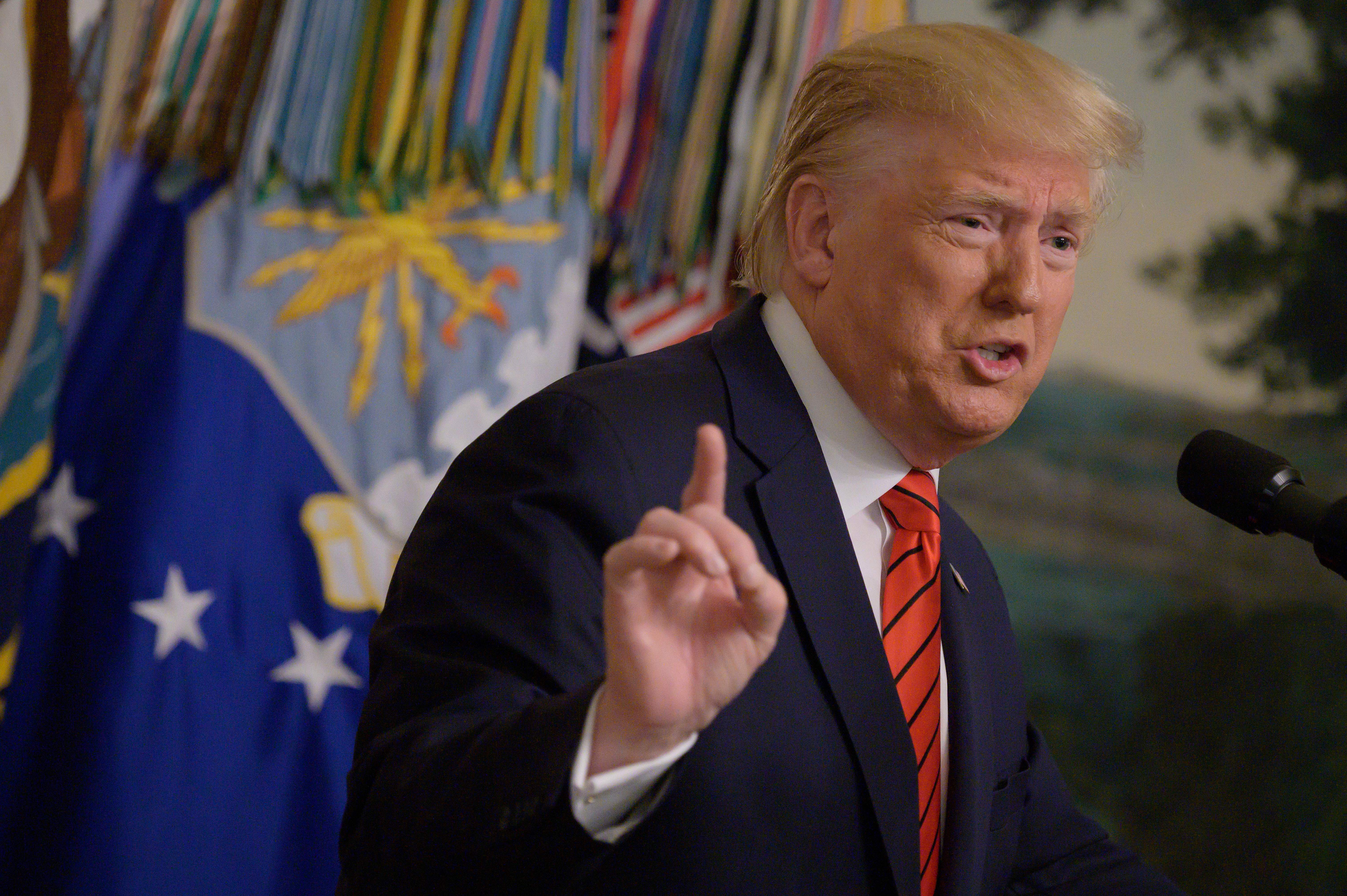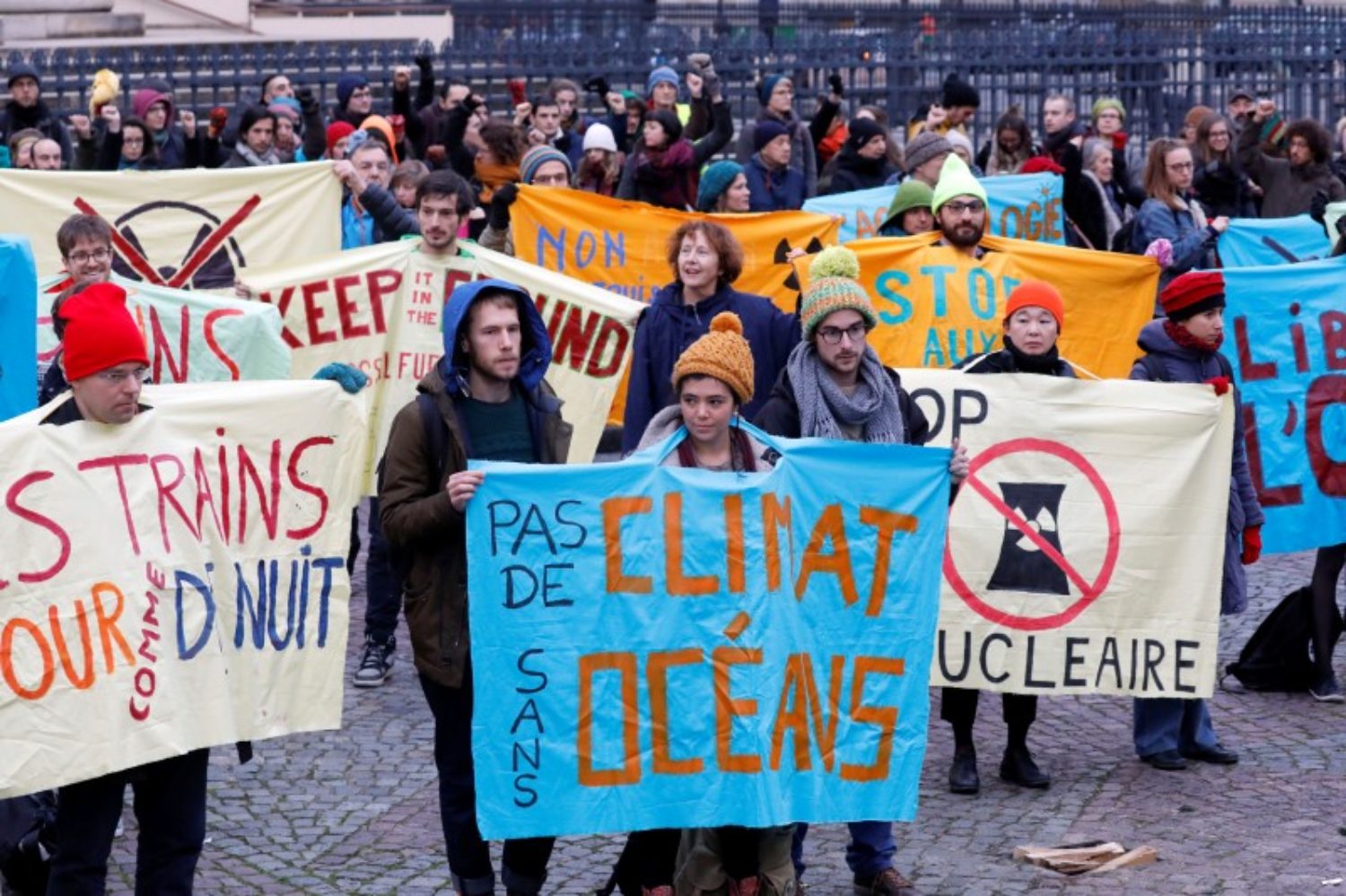President Donald Trump has repeatedly said he wants the United States to leave the Paris climate accord — starting Monday he can begin to do that.
The process to withdraw could take up to a year and not be official until the day after the 2020 presidential election, the Associated Press reported Monday.

(Photo by JIM WATSON/AFP via Getty Images
Secretary of State Mike Pompeo tweeted Monday that the Trump administration is right on course for withdrawal, while adding that “The U.S. is proud of our record as a world leader in reducing all emissions, fostering resilience, growing our economy, and ensuring energy for our citizens.”
Today we begin the formal process of withdrawing from the Paris Agreement. The U.S. is proud of our record as a world leader in reducing all emissions, fostering resilience, growing our economy, and ensuring energy for our citizens. Ours is a realistic and pragmatic model.
— Secretary Pompeo (@SecPompeo) November 4, 2019
According to the Trump administration, the president remains resolved to leave the agreement. State Department spokesman James Dewey informed AP on Friday: “The U.S. position with respect to the Paris Agreement has not changed. The United States intends to withdraw from the Paris Agreement.” (RELATED: Global C02 Emissions Hit Record Highs Despite Paris Climate Accord)
When he was campaigning for the presidency, Trump knocked the Paris Agreement as an impediment to American jobs. When he became president he began to think about the potential consequences of walking out of the treaty and only in late May did he reportedly make up his mind and announce — privately — that he would follow through on this promise to renounce the treaty.
The Competitive Enterprise Institute (CEI) was one of the most avid opponents of the climate accord and actively encouraged Trump to remove the U.S. from it.

REUTERS/Charles Platiau
CEI senior fellows Chris Horner and Marlo Lewis published a paper just prior to Trump’s decision that said the agreement seriously compromised American sovereignty.
“The Agreement endangers America’s capacity for self-government,” their paper reads. “It empowers one administration to make legislative commitments for decades to come, without congressional authorization, and regardless of the outcome of future elections.”
If Trump does not win the 2020 presidential election and someone else does who supports the climate accord, the new president could turn around and embrace the agreement within 30 days, former Obama state department official Andrew Light told AP.


